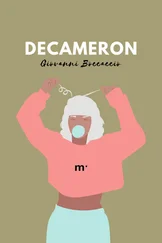Millicent nodded. “Lots of places need good pickers these days, I understand.”
“Booker’s got to get work soon or I don’t know what we’ll do.”
“You wait right here. I want to give you something.”
A moment passed. In Millicent’s absence, Lois quickly snatched up three of the remaining rectangles of shortcake and slipped them into the pocket of her dress. It was a floral print dress, dirty and frayed. She was ashamed of it and at first didn’t want to accept her hostess’s invitation on account of not having anything better to wear. But she’d given her hair a good combing and had taken a water bucket and scrub-rag to her soiled face and arms and legs, and made herself halfway presentable, given the circumstances, and Millicent had welcomed Lois to her tea table without even batting an eye over her appearance.
“I want you to have this,” said Millicent on her return. “It’s my lucky half dollar.”
“Oh no, Miss Millicent. I cain’t possibly take your lucky coin.” Millicent opened Lois’s right hand and placed the fifty-cent piece on her palm. Then she closed Lois’s fingers around it. There was dirt beneath all the nails. Lois’s fingers were thin and withered like those of an old woman.
“Goodbye, Lois, and good luck.”
Once outside, Lois opened her hand to look at the coin. It was a 1920 “Walking Liberty” and it glistened in the bright, afternoon sunlight. A moment later, Lois felt a hand upon her shoulder. “I been lookin’ for you,” a man said. “You weren’t around the tent. Who’s lookin’ after the children?”
Lois turned to peer up into the face of her husband Booker. It was ruddy from the sun. He had been out with three other migrant men driving through the valley looking for work, and had returned without prospects.
“Mrs. Jordan, from the tent next to ours — she said she’d keep an eye on ’em ’long with her own young ’uns.”
“Where’d you get that half dollar?”
Lois tossed her head in the direction of the structure behind her. Its sides were constructed of sheets of rusty, corrugated iron and strips of tattered roofing paper. The “roof” itself was made of old canvas, as if cannibalized from a tent that had been ripped apart and put to slightly less transient use. For a door there was a hanging gunny-sack. Likewise, there was a paneless window next to the door, curtained by flour sacks. In front of the makeshift house were two crates (for “night sittin’”). Between them was an improvised flowerbox containing field flowers. The tiny shack looked as if someone — in all likelihood, Millicent — had tried her best to make of it something tidy and pleasant. There was even a welcome mat of sorts made from automobile floor carpeting.
“What are you doin’ takin’ money from folks just as bad off as we are?” asked Booker, pocketing the coin that had been offered to him by his wife.
“She wanted us to have it.”
“Why?”
“She likes me, I figger. We had a nice visit. We had a tea party.”
“You had a what?”
“A tea party. I ain’t never been to no tea party before and it was right nice.”
Booker thought about this and then said, “I heard about her, that Mrs. Tengle. Met her husband. He’s got his hands full. She’s a might tetched.”
“She didn’t seem tetched to me a’tall, Booker. She seemed refined .”
“Well, don’t you go takin’ no more of her money. Not that you’re gonna get much of a chance anyways. We’s heading out tonight. Couple of the fellas said there’s better chance for work farther north.”
“Are the Tengles comin’ too, do you reckon?”
Booker shook his head. “Tengle, he says they’ll stay here a mite longer. He’s still got stuff of his wife’s he can sell. She’s got family things worth a bunch of money.”
“I hope she don’t have to sell her tea set.”
The two started back to their tent. It was little more than tarpaulin stretched down to the ground in lean-to fashion from the raised side of the back of their truck — a 1926 Hudson Super-Six sedan conversion. The children were waiting for them next to the tent. Each was barefoot, the two boys dressed in torn shirts and patched blue jeans held up by single suspenders. The girl wore a faded plaid school-day dress with a trace of what had once been a frilly white collar.
“We’s hungry,” said Oren, the oldest boy and spokesman for the trio.
“I’ll boil up the rest of them potatoes,” said Lois to her husband. “Oh, I almost forgot—” She pulled the crumbling pieces of shortcake from her pocket and divided them among the children.
Booker chuckled a little to himself.
‘What’s got you so tickled?” asked Lois, handing the water bucket to her son Les. “You take that down to the creek and hurry right back, y’hear?”
“Yes, ma’am.”
Booker reached over and kissed his wife on the forehead. “You goin’ to tea parties and all. Woulda never believed it.”
“I couldn’t rightly believe it neither. But it was nice, Booker. It was so very, very nice.”
Dewey and Florence Hurd adopted the girl from nuns when she was three. Joanna was the illegitimate daughter of a woman who had worked in Chillicothe in one of the town’s shoe factories. Joanna’s mother fell on hard times at war’s end and began to sell her body and dissipate herself. She eventually left Ross County under a cloud of shame and disgrace, and ended her life in a fleabag hotel in Los Angeles in 1930, an empty morphine-injecting Pravaz at her side.
Joanna had been grateful that the Hurds, who had no children, had taken her in and brought her to live as their daughter in their simple cream-colored century-old rectangular stone house, which stood embowered by white oaks and black walnuts on the Cincinnati Pike west of Chillicothe. The house and surrounding farm were situated in the valley of Paint Creek, within easy walking distance of hills thickly wooded by hickories and beeches and ashes. It was during all those solitary sylvan rambles that Joanna grew into the shy young woman of sixteen she had this year become. And it is to these woods that Joanna fled when her adoptive father and mother flung their angry barbs at one another in each new chapter of that all-too-familiar tale of protracted marital discord to which the girl was daily witness — evidence of a rocky union that would not be dissolved, for neither husband nor wife could afford to live without the other in a devil’s pact of prolonged mutual destruction.
Dewey Hurd had been an English professor at an Indiana college when he inherited the farm from his uncle and decided to have a go at the agrarian life. Florence had once worked as a children’s advocate in New York City, loving every child that she discovered hungry or ill-clad or homeless or unloved, though once a child — in this case, her own adopted daughter Joanna — was rescued from the dire vise of societal neglect, it was nothing for her to show (as it was with her husband) that side of herself that was not compassionate, but grasping and snide and brutally competitive, as evidenced by participation in a marriage that was nothing if not a daily rivalry of biting wit.
At times Joanna felt that her two parents were competing for her exclusive endorsement. At other times, she was the invisible child, hardly noticed when it came time for an exchange of the harsh, bitter words and sly machinations that defined and defiled the marriage.
Aside from the metaphorical storm of hymeneal strife that blew in regular gusts through the simple stone house beneath the oaks and the walnuts, the weather in its truer meteorological sense had been especially unkind to Ross County, Ohio, over the past three years. In 1935 a flood had left the corn crop and the garden choked out by rampant Johnson grass. The winter of 1935–36 had sent temperatures plummeting to twenty-two below, killing the winter wheat and rye. The drought that arrived the following summer was one of the worst on record, and when it was over, all that was left for the Hurds was a harvest of scarcely a single bushel of corn nubbins and a field of defiant wild cornflowers. Sometimes Joanna thought of herself as the cornflower surviving in the midst of the ugly landscape that was her tempestuous family.
Читать дальше












